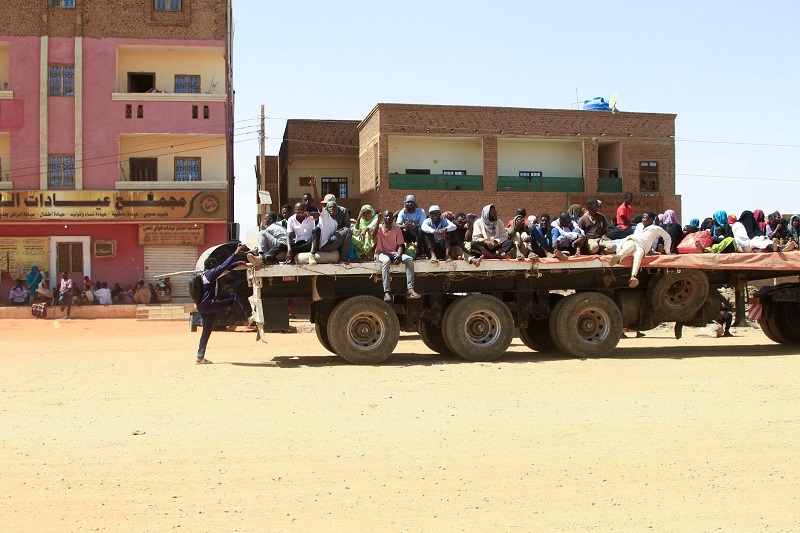The attack, involving heavy artillery fire, resulted in the tragic loss of at least 17 lives and left 106 people wounded.
The incident occurred despite a previously signed ceasefire between the Sudanese government forces and the rival Rapid Support Forces, which had been extended just a few days prior.
Both sides have accused each other of violating the ceasefire agreement repeatedly, exacerbating the already volatile situation.
Furthermore, in response to these continued hostilities, the Sudanese Armed Forces announced the suspension of dialogue with the Rapid Support Forces.
In addition to these challenges, the United States has announced sanctions against the Sudanese army and the RSF.
In the midst of these difficult circumstances, Sudan must find a way to navigate its ongoing economic crisis and address the underlying issues that have contributed to the country’s instability.
Top 7 Solutions For Sudan’s Economic Crisis
Sudan is currently facing a severe economic crisis due to ongoing fighting, the collapse of the financial system, and soaring food and transport prices. To address this crisis and pave the way for economic recovery, several steps need to be taken.
Related Posts
1. Ceasefire and Stability
The immediate priority should be to achieve a comprehensive ceasefire and bring an end to the fighting. This would create a stable environment that is conducive to economic recovery and reconstruction.
2. Transition to Civilian Rule
Power must be transferred into civilian hands to ensure a more stable and inclusive government. This would require a transition process that involves all stakeholders, including political parties, civil society, and representatives from different regions and ethnic groups.
3. Economic Reforms
Sudan needs to implement comprehensive economic reforms to address the underlying structural issues that have contributed to the current crisis.
This includes tackling corruption, improving governance, and implementing sound fiscal and monetary policies.
International financial institutions and development partners can provide support and expertise in designing and implementing these reforms.
4. Diversification and Investment
Sudan’s heavy reliance on oil revenues has made it vulnerable to fluctuations in global oil prices.
To mitigate this vulnerability, the country should focus on diversifying its economy by promoting sectors such as agriculture, manufacturing, services, and tourism.
Encouraging domestic and foreign investment in these sectors can help stimulate economic growth and create employment opportunities.
5. International Support
Sudan would benefit from international support and assistance to overcome the economic crisis. This can come in the form of financial aid, debt relief, technical expertise, and investment.
The international community should engage with Sudan and provide the necessary support to help stabilize the economy and facilitate long-term development.
6. Infrastructure Development
Investing in infrastructure projects, such as roads, ports, and power generation, can contribute to economic growth and attract investment. It would improve connectivity within the country and facilitate trade and commerce.
7. Social Safety Nets
To mitigate the impact of the economic crisis on vulnerable populations, it is essential to establish social safety nets, including targeted welfare programs, food assistance, and healthcare services.
These measures would provide temporary relief and support those most affected by the crisis.
Conclusion: Sudan’s Economic Crisis
Sudan can begin to recover from the ongoing economic crisis by achieving a ceasefire, transitioning to civilian rule, implementing economic reforms, diversifying the economy, seeking international support, investing in infrastructure, and establishing social safety nets.
These actions would lay the foundation for sustainable economic growth and development in Sudan.

